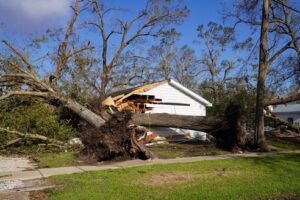
This project seeks to understand how households made decisions about evacuating for Hurricane Laura amid COVID-19 risk and how local emergency managers made decisions about how to manage evacuation and shelters during the dual hazards of a hurricane and a pandemic. Through interviews with individuals living in the path of Hurricane Laura in Louisiana and Texas and the emergency managers and public health officials working to respond to the event in the area, we will learn about how decisions were made, the considerations for decisions about when to evacuate areas, where to evacuate people to, how to safely shelter given the risk of COVID-19 spread, and how to communicate the risks and recommended or required actions in a complex situation. We will also learn about how it went given the decision that were made during Hurricane Laura and key lessons learned for future dual hazard situations.
Through a supplemental grant, the project team and other grantees participated in workshops with the American Association for the Advancement of Science on public engagement and added a set of interviews with chief information officers and other professionals working on communication with the public during the pandemic. The information learned from these interviews will teach us about how to better communicate with different audiences when there are multiple hazards to navigate such as a hurricane during a pandemic.
Funder: National Science Foundation, Award # 2051578 & Quick Response Research Award Supported by the Natural Hazards Center at the University of Colorado Boulder with the support of the National Science Foundation and the National Oceanic and Atmospheric Administration (NOAA) Weather Program Office.
Project Team: Lauren Clay, UMBC; Alex Greer, SUNY Albany; Haley Murphy, Oklahoma State University; Tristan Wu, University of North Texas